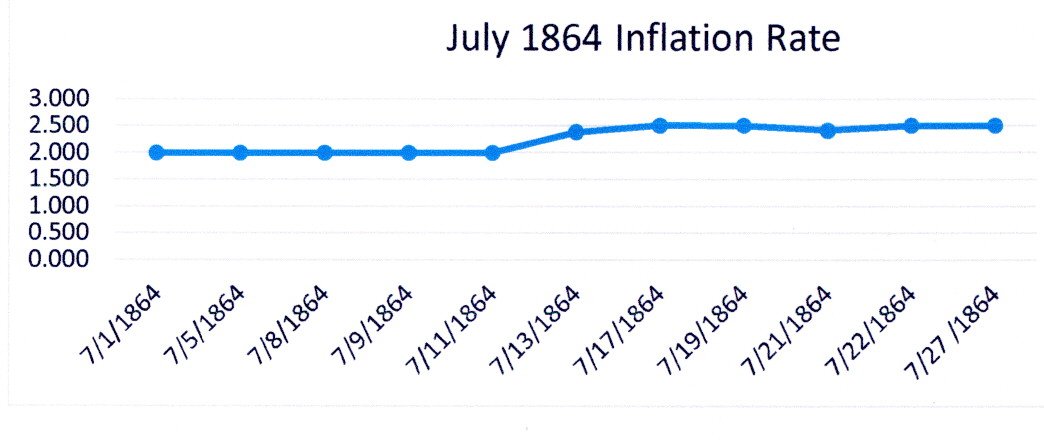
1864 July

July 9, 1864- Battle of Monocacy, Maryland. In an attempt to draw Union troops away from the ongoing siege of Petersburg and Richmond, a Confederate force
under Jubal Early quietly moved north into Maryland. Early had made excellent progress until he reached Frederick, Maryland, where a force of 6,000 Federal troops
under General Lew Wallace, was arrayed to delay his advance. Though the battle was a Union defeat, it was also touted as "the battle that saved Washington" for it succeeded
in holding back Early's march until troops could be sent to the capital's defense.
July 11-12, 1864- Attack on the Defenses of Washington. Jubal Early's troops arrive on the outskirts of Washington, DC, and trade cannon fire with a token
Union force remaining in the forts around the city. President Lincoln observes the skirmishing from Fort Stevens as reinforcements from the Army of the Potomac
arrive and quickly fill in the works. Early withdraws that evening.
July 14-15, 1864- Battles near Tupelo, Mississippi. The Union defeat of Nathan Bedford Forrest secured the supply lines to Sherman's armies operating
against Atlanta, Georgia.
July 17, 1864- General John Bell Hood replaces General Joseph Johnston as commander of the Army of Tennessee. This change in command signals a new Confederate
strategy to thwart Sherman's campaign, though the end result will be disastrous for the southern cause.
July 20, 1864- Battle of Peachtree Creek, Georgia, the first major battle around the city of Atlanta. General Hood sends his army out of the city's defenses to attack
the approaching Federal troops under George Thomas. After several hours of fierce fighting, Hood withdrew back to his own defensive works.
July 21, 1864- The Battle of Atlanta. Hood's second effort to throw back Union forces under Sherman brings him heavy casualties with no positive results. Genera
l James McPherson, commander of the Union Army of the Tennessee, is killed during the fighting.
July 30, 1864- The Battle of the Crater at Petersburg, Virgina. After a month of tunneling by soldiers of the 48th Pennsylvania Infantry, a massive mine was exploded
under a Confederate fort in the Petersburg siege lines. The infantry charge that followed was poorly coordinated and by day's end, Confederate counterattacks had driven
out the Union troops and the siege lines remained unchanged.